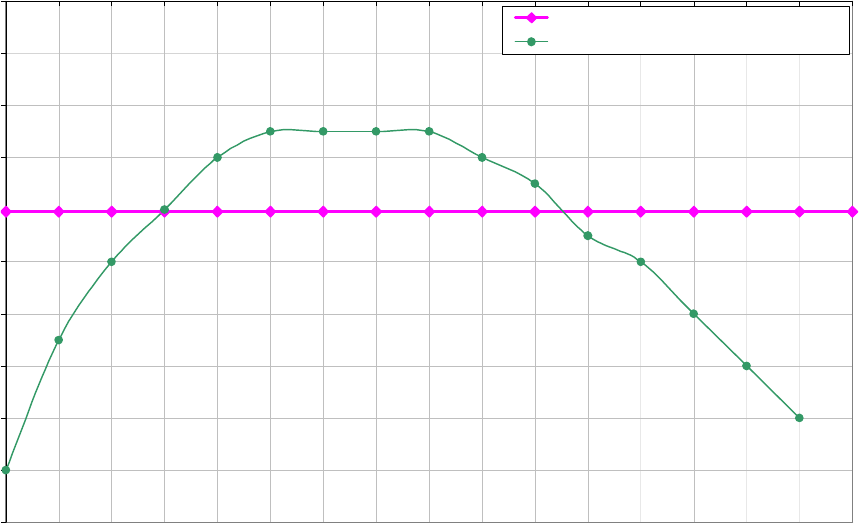
07/05/06 © Etymonic Design Incorporated, 41 Byron Ave., Dorchester, ON, Canada N0L 1G0 Page 2
USA 800-265-2093 519-268-3313 FAX 519-268-3256 www.audioscan.com
microphone.
2.2 Broad-band signals
2.2.1 Pink Noise signal
The pink noise signal is available for Multicurve 2 cm
3
coupler gain and output frequency response measurements
and for Insertion gain and Speechmap real-ear measurements. It is a pseudo-random signal composed of 1024
simultaneous tones summed to provide a crest factor of 12 dB. The spectrum of the pink noise signal is
controlled by the reference microphone in conjunction with a digital feedback loop with a frequency resolution of
1/12 octave and a response time of about 1/3 of a second. Pink noise was selected as a test signal because it
has equal energy per octave, producing a flat spectrum when analyzed in 1/12 or 1/3 octave bands. Figure 1
shows the 1/3 octave spectrum of the pink noise signal and the noise signal specified in ANSI S3.42-1997. Note
that the ANSI S3.42-1997 spectrum represents speech peaks not the long-term average.
1/3 OCTAVE SPECTRA for the PINK NOISE SIGNAL
and ANSI S3.42 NOISE re overall SPL
-18.00
-17.00
-16.00
-15.00
-14.00
-13.00
-12.00
-11.00
-10.00
-9.00
-8.00
200 250 315 400 500 630 800 1000 1250 1600 2000 2500 3150 4000 5000 6300 8000
BAND CENTER FREQUENCY (Hz)
BAND SPL (dB re overall SPL)
Band Level re overal SPL - Pink Noise
Band Level re overall SPL - ANSI S3.42
Figure 1: 1/3 octave spectra for the pink noise signal and the noise signal specified in ANSI S3.42-
1997.
2.2.2 Dual-direction pink noise signal (Verifit only)
This unique test signal is available in the dual-source Verifit test chamber and for real-ear measurements by
adding an additional sound-field speaker. It is similar to the pink noise signal described previously except that the
component tones are presented simultaneously from two speakers, half from each. The level of each tone is
independently controlled at the reference microphone. Two frequency response curves are generated
simultaneously -one for each speaker. This provides a real-time measure of the functioning of the directional
features of hearing aids that is independent of compression or noise reduction algorithms. Measurement
methods which sequentially measure response from different directions work only with these features disabled.
2.2.3 Real-speech signals
Real-speech signals are provided in Speechmap for both REM and S-REM measurement modes. Four different
